Iraq Counts Votes as Record Abstentions Hit First Post-IS Poll
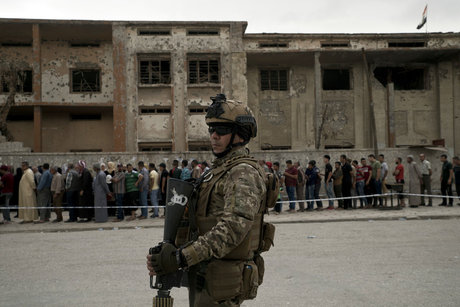
AFP
Iraq tallied votes Sunday as record abstentions dealt a blow to a political elite reviled for its perceived corruption, in the country's first national poll since it defeated the Islamic State group.
The counting process to determine the makeup of the 329-seat parliament was expected to take days -- and the horse-trading to form a new government far longer.
But what has emerged already is that many across the war-scarred nation are fed up with the establishment that has dominated since the 2003 U.S.-led ouster of Saddam Hussein.
"The policies of the last 15 years no longer convince voters," Amir al-Saadi, a politics professor at the University of Baghdad, told AFP.
Official turnout on Saturday was 44.5 percent -- the lowest in any national poll since the U.S.-led invasion -- with Prime Minister Haider al-Abadi angling for a new term after overseeing the fight against IS.
Abadi -- a consensus figure who has balanced off the United States and Iran -- faces several major challengers from within his dominant Shiite community four years after coming to power.
Chief among them is Hadi al-Ameri, a former commander of Iran-backed units that fought IS, who is looking to turn battlefield wins into political gains with his list of ex-combattants.
An official told AFP under condition of anonymity that initial tallies had Abadi's list just ahead of that of Ameri, with an anti-establishment alliance of Shiite cleric Moqtada Sadr and communists in third.
- U.S.-Iran tensions -
The vote came with tensions surging between the U.S. and Iran after Washington's withdrawal from the 2015 nuclear deal, sparking fears of a destabilizing power struggle over Iraq.
The U.S. -- which has troops in the country from the fight with IS -- lauded the poll and called for an "inclusive government, responsive to the needs of all Iraqis."
But swathes of the population -- especially the youth -- appeared to have long given up on that dream.
"Iraqis had the sense that the game was already decided, that the elections were pre-packaged," said Karim Bitar, from the French Institute for International and Strategic Affairs.
Turnout was low despite a sharp decrease in violence across the country, with threats from IS against the polls failing to materialise.
Voting was stronger in some areas freed from the jihadist yoke, with people queueing up to cast their ballot in the battered former IS bastion of Mosul.
Iraqis were faced with a fragmented political landscape, some five months after the IS was ousted from the country.
Results in the Sunni heartlands once dominated by the jihadists were set to change radically with Shiite-led groupings pushing to make inroads.
Turnout was also higher than elsewhere in Kurdish regions where the traditional political forces have been left in disarray by a disastrous push for independence last year.
Baghdad seized back disputed oil-rich regions in the wake of a controversial referendum, threatening the traditional role of kingmakers played by the Kurds on the national scene.
Overall, just under 7,000 candidates stood in the nationwide and Iraq's complex system means no single bloc is likely to get anything near a majority in parliament.
Whoever emerges as premier will face the mammoth task of rebuilding a country left shattered by the battle against IS -- with donors already pledging $30 billion (25 billion euros).
More than two million people remain internally displaced and IS is still able to launch deadly attacks.
Latest News
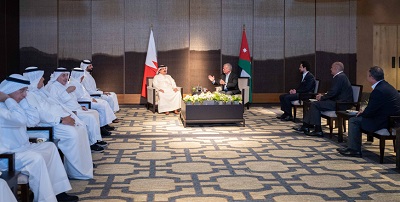 King, Bahrain monarch stress need to maintain Arab coordination
King, Bahrain monarch stress need to maintain Arab coordination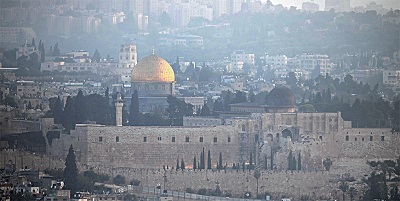 Security Council to vote Thursday on Palestinian state UN membership
Security Council to vote Thursday on Palestinian state UN membership Dubai reels from floods chaos after record rains
Dubai reels from floods chaos after record rains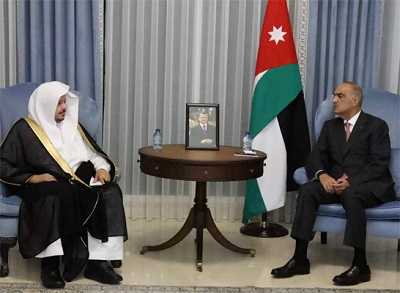 Khasawneh, Saudi Shura Council speaker discuss bilateral ties, regional developments
Khasawneh, Saudi Shura Council speaker discuss bilateral ties, regional developments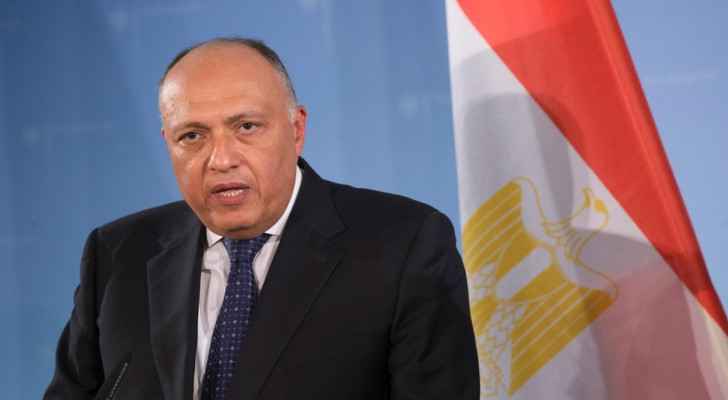 Egyptian Foreign Minister condemns potential Palestinian displacement as 'war crime'
Egyptian Foreign Minister condemns potential Palestinian displacement as 'war crime'
Most Read Articles
- King, Bahrain monarch stress need to maintain Arab coordination
- Dubai reels from floods chaos after record rains
- Security Council to vote Thursday on Palestinian state UN membership
- Khasawneh, Saudi Shura Council speaker discuss bilateral ties, regional developments
- Tesla asks shareholders to reapprove huge Musk pay deal
- Jordan will take down any projectiles threatening its people, sovereignty — Safadi
- Hizbollah says struck Israel base in retaliation for fighters' killing
- Princess Basma checks on patients receiving treatments
- Knights of Change launches nationwide blood donation campaign for Gaza
- The mystery of US interest rates - By The mystery of US interest rates, The Jordan Times